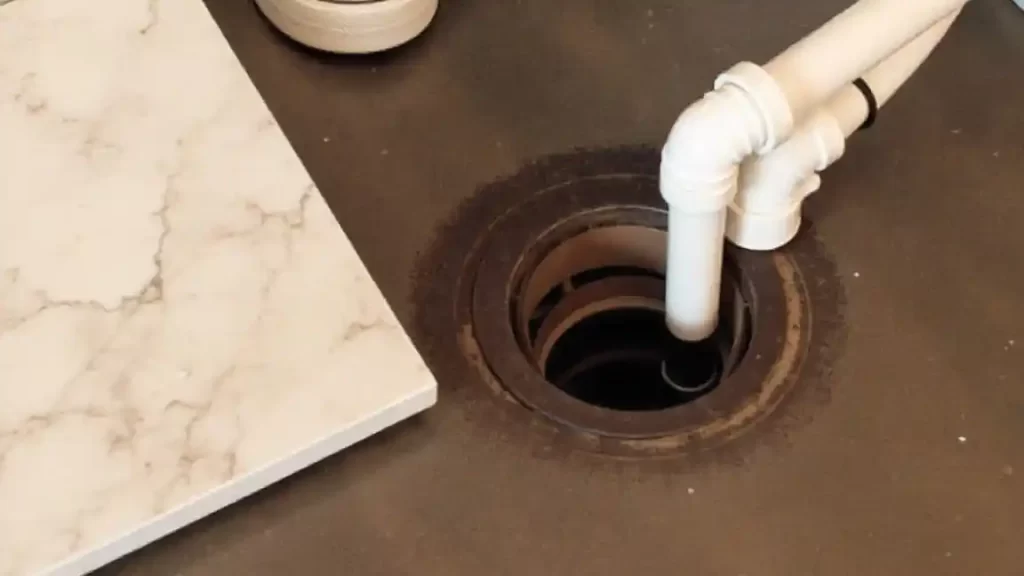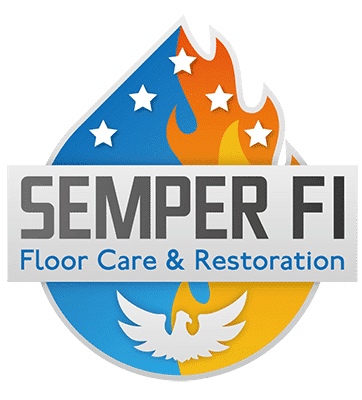Few things are as alarming as walking into your basement and discovering sewage water creeping across the floor. It’s messy, it’s hazardous, and it’s something no homeowner wants to deal with. But when it happens, knowing what to do — and just as importantly, what not to do — can make all the difference in keeping your family safe and minimizing damage to your home.

At Semper Fi, a leading damage restoration and cleanup company, we’ve helped countless homeowners recover from the chaos of sewage backups. Here’s our expert guide to handling the situation quickly, safely, and effectively.
💧 What Causes a Sewage Backup in the Basement?
Before you can fix the problem, it helps to understand why it happened in the first place. Common causes include:
- Clogged or damaged sewer lines: Grease buildup, tree roots, or debris can block the main line and push wastewater back into your home.
- Heavy rain or flooding: When city sewers are overwhelmed, excess water can force sewage backward through your drains.
- A broken sump pump or backwater valve: These systems are meant to prevent flooding — but when they fail, backups become much more likely.
- Old or deteriorating plumbing: Cracked or corroded pipes can restrict flow, increasing the risk of a backup.
Identifying the cause helps professionals like Semper Fi not only clean up the mess but also prevent future incidents.
⚠️ Step 1: Stay Calm and Stay Out
Sewage water is not just dirty — it’s dangerous. It can contain bacteria, viruses, and toxic contaminants. The very first rule is to keep people and pets away from the affected area.
If you must enter to shut off electricity or inspect the damage, wear protective clothing, including rubber gloves, boots, and a face mask. Avoid touching contaminated items or using your home’s plumbing until the problem has been professionally inspected.
🔌 Step 2: Shut Off Electricity (If Safe to Do So)
If the sewage has reached electrical outlets or appliances, do not step into the water. Call your utility company or a qualified electrician immediately.
If the water is contained and it’s safe to access your breaker, switch off power to the affected area to prevent shocks or electrical fires.
🚫 Step 3: Don’t Use Drains, Toilets, or Sinks
When your basement sewage backs up, using any water in the home can make things worse. Running water from faucets or flushing toilets sends more wastewater into an already overloaded system, causing the backup to spread.
Stop all water use immediately until the blockage is cleared by a professional.
🧽 Step 4: Call the Professionals — Immediately
This isn’t a job for DIY cleaning. Even a small amount of sewage exposure can cause illness and long-term property damage.
Call a trusted restoration company like Semper Fi right away.
Semper Fi’s certified technicians are trained in biohazard cleanup, water extraction, disinfection, and structural drying. We use industrial-grade equipment to remove sewage safely, sanitize contaminated surfaces, and restore your basement to pre-damage condition — fast.
Time matters. The longer sewage water sits, the more likely it is to:
- Soak into drywall, wood, and insulation
- Cause permanent structural damage
- Promote mold and mildew growth
- Create lingering odors that are difficult to remove
A professional cleanup prevents these issues and ensures your home is safe again.
🧰 Step 5: Remove Undamaged Items (If Safe)
If you can safely reach items that haven’t been contaminated, remove them to a clean, dry area. Anything that came into contact with sewage water — carpets, furniture, boxes, toys — should be discarded or professionally disinfected.
Don’t take chances with porous materials like cardboard, fabric, or insulation. They’re nearly impossible to clean thoroughly once contaminated.
🌬️ Step 6: Ventilate and Dry the Area
While waiting for Semper Fi’s team to arrive, open windows and doors (if possible) to improve ventilation. However, avoid using fans or HVAC systems, as they can spread airborne contaminants throughout your home.
Once the area has been cleaned and disinfected, professionals will use dehumidifiers and air movers to dry out the space and prevent mold growth.
🧼 Step 7: Disinfect and Deodorize
After the sewage is removed, thorough disinfection is essential. Professionals use EPA-approved antimicrobial treatments to kill harmful pathogens and neutralize odors. Semper Fi goes a step further by applying preventive coatings that reduce the risk of future contamination and mold formation.
🚫 What NOT to Do During a Sewage Backup
Even well-intentioned homeowners can make mistakes in the panic of the moment. Avoid these common errors:
- ❌ Don’t try to clean with household cleaners. Regular cleaning products can’t kill the bacteria found in sewage and may create toxic fumes.
- ❌ Don’t ignore small backups. Even minor overflows can indicate serious underlying plumbing issues.
- ❌ Don’t delay calling professionals. The faster the cleanup begins, the less damage your property will suffer.
- ❌ Don’t forget to contact your insurance provider. Many homeowners’ policies cover sewage backups, especially if caused by a sudden blockage or mechanical failure.
🏠 Long-Term Prevention Tips
Once your basement is clean and restored, it’s time to think about prevention.
Here are a few simple but effective steps:
- Install a backwater valve to prevent sewage from re-entering your home.
- Have your main sewer line inspected and cleaned annually
- Avoid flushing wipes, grease, or paper towels — they’re major clog culprits.
- Keep your sump pump maintained and test it before storm season.
💪 Trust Semper Fi for Safe and Professional Sewage Cleanup
Sewage backups are stressful, but you don’t have to handle them alone. With 24/7 emergency service, Semper Fi is always ready to respond — equipped with advanced technology, certified technicians, and a commitment to restoring your home safely and efficiently.
Whether it’s a small basement overflow or a full-scale contamination, Semper Fi is the name homeowners trust for fast, professional, and compassionate cleanup.
Call Semper Fi today to schedule an inspection or emergency response.
When sewage strikes, trust the experts who treat your home with the same care and dedication they’d give their own.
FAQ
1. What should I do first if I discover sewage in my basement?
The first thing you should do is keep everyone — including pets — out of the affected area. Sewage water contains harmful bacteria and viruses. Next, if it’s safe, shut off power to the basement to prevent electrical hazards, and call a professional sewage cleanup company like Semper Fi immediately for safe removal and sanitation.
2. Is it safe to clean up sewage myself?
No. DIY sewage cleanup is unsafe and can expose you to serious health risks like E. coli, hepatitis, and mold spores. Household cleaners aren’t strong enough to disinfect contaminated areas. Always rely on professionals like Semper Fi, who use specialized protective gear, disinfectants, and equipment for complete decontamination.
3. What causes sewage backups in basements?
Common causes include:
- Clogged or broken sewer lines (from tree roots, debris, or grease buildup)
- Heavy rainfall or flooding that overwhelms municipal systems
- Failed sump pumps or backwater valves
- Aging or collapsed plumbing
A licensed plumber or restoration expert can identify the root cause and help prevent recurrence.
4. How dangerous is sewage exposure?
Sewage contains bacteria, parasites, and viruses that can cause severe infections or illness if inhaled or touched. Prolonged exposure can also lead to mold growth and structural damage. That’s why it’s critical to have professionals handle cleanup and disinfection right away.
5. Will my homeowners’ insurance cover sewage backup cleanup?
In many cases, yes — but coverage depends on your policy. Most insurers require a special sewage or sump pump backup rider for full reimbursement. Always contact your insurance company as soon as the incident occurs, and let Semper Fi assist with documentation and photos for your claim.
6. How long does professional sewage cleanup take?
Cleanup time depends on the extent of the damage, but most jobs take anywhere from 1 to 3 days. This includes sewage extraction, sanitation, drying, and deodorizing. Large-scale flooding or severe contamination may take longer, especially if structural repairs are needed.
7. Can I stay in my home during a sewage backup cleanup?
It depends on the severity and location of the backup. If the contamination is limited to a contained basement area and ventilation is possible, you may be able to stay upstairs. However, for safety and health reasons, many homeowners temporarily relocate until the cleanup and disinfection are complete.
8. How can I prevent a sewage backup in the future?
You can reduce your risk with a few preventive steps:
- Install a backwater valve or sump pump alarm system.
- Schedule annual sewer line inspections.
- Avoid flushing non-flushable items (like wipes, grease, or paper towels).
- Keep gutters and drains clear of debris.
- Regularly maintain your plumbing system.
Semper Fi also offers preventive maintenance services to help keep your property protected year-round.
9. What items can be saved after a sewage backup?
Non-porous items like metal, glass, or hard plastic can often be disinfected and salvaged. However, porous materials such as carpet, insulation, drywall, cardboard, or fabric are usually unsalvageable once contaminated by sewage. Semper Fi’s technicians can assess which items can be safely restored.
10. Why should I choose Semper Fi for sewage cleanup?
Semper Fi is a trusted damage restoration and cleanup company known for professionalism, rapid response, and compassionate service. Our certified technicians use advanced extraction, drying, and disinfection technology to restore your home safely and efficiently. We also work directly with your insurance provider, minimizing your stress during an already difficult time.


